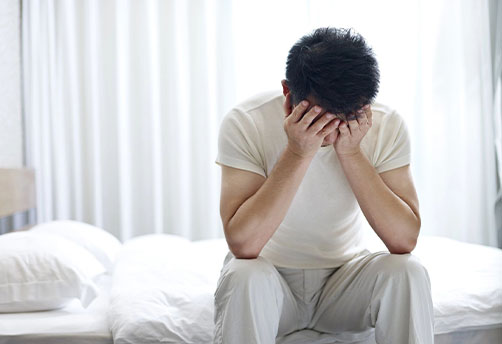

12
Oct
Are You Losing Sleep During the COVID Pandemic?

One of the things we are hearing in our Boynton Beach, FL dental practice is that our patients are coping with increased stress and fatigue. Sleep quality is a factor. If you are sleeping less soundly or losing sleep altogether, you are not alone.
Measuring America’s Sleep
In 2019, The Better Sleep Council (BSC) launched The State of America’s Sleep, a benchmark survey with the goal of measuring the quality of sleep in the United States year over year. In 2020, three follow up research initiatives compared the 2019 findings to findings during COVID-19. In The Better Sleep Council’s recently published report, we learn that COVID related stress is negatively affecting America’s sleep. Fewer Americans have been getting the minimum recommended 7-8 hours of sleep per night, and in March 2020 52% described their sleep as poor or fair.
Stress during COVID-19 is higher, and we know stress negatively impacts sleep. But a medical condition known as Sleep Apnea may also be involved. Diagnosis and treatment of Obstructive Sleep Apnea (OSA) are essential for maintaining optimal health, as oxygen deprivation impacts all organs of your body. In fact, according to CHEST Journal, OSA has emerged as a highly prevalent public health problem that contributes to cardiovascular, metabolic, cognitive, and cancer-related diseases.
OSA is characterized by the collapse of the upper airway as you go into a deep sleep. After 10 seconds to 2 minutes of oxygen deprivation, your automatic nervous system awakens you to breathe. If you have severe sleep apnea going up to 2 minutes without breathing, you likely find yourself waking up gasping for breath. If you have minimal sleep apnea, you or your sleep partner are apt to notice you snore.
As oxygen deprivation occurs over and over again, not only are your organs suffering from low oxygen. This sleep fragmentation decreases the minutes you sleep and the quality of that sleep, increasing fatigue, and the risk for a broad range of physical, mental, and emotional health problems.
Do You Have Stress (Anxiety) Related Sleep Deprivation in the Form of Insomnia, Obstructive Sleep Apnea, or Both?
The signs and symptoms of insomnia include waking up too early in the morning, the inability to fall back to sleep, and going through episodes of uncomfortable or disturbed sleep. The signs of Sleep Apnea are frequent snoring, choking, and gasping for breath.
As your dentist, I can help you sort out whether you have OSA and refer you to a local diagnostic sleep dentist or physician. If you have minimal to moderate sleep apnea, it may be a good treatment option to have a comfortable custom-fitted oral appliance that opens your airway as you sleep. This would be an alternative to sleeping with a CPAP machine. With either type of treatment, the efficacy of your treatment would be periodically evaluated by your sleep physician.
Since OSA is a physical condition, I can look at the size of your airway and other anatomic risk factors. I will also ask you questions aimed at identifying signs and symptoms. With this combined information, I can appropriately guide you and, if indicated, refer you for a sleep study performed by a local medical physician with expertise in sleep medicine.
Because OSA has become recognized as a common health problem, dentists play an important role in identifying patients with OSA during routine dental examinations. If you have observed changes in your sleep quality and quantity since your last dental examination, this is an important conversation we should have. You could be experiencing increased insomnia during this time of heightened stress, and/or it could be you are experiencing obstructive sleep apnea.
Here is a link to a helpful article by a cognitive therapist providing tips for coping with Coronavirus anxiety. And always remember, our dental team genuinely cares about you!
~ Dr. Jamie J. Alexander, Your Boynton Beach, Florida Dentist




